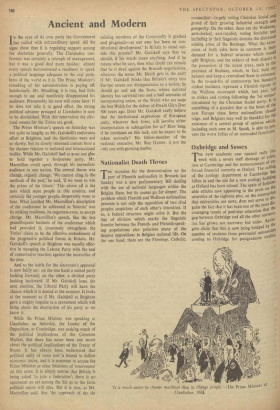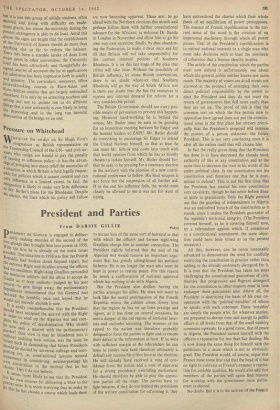Oxbridge and Sussex
THE NEW academic year opened sadly this week with a severe staff shortage of scien* tists at Cambridge and the announcement of en' forced financial austerity at Oxford. The ceiling of the zoology department at Cambridge has fallen in and the site for a new zoology building at Oxford has been vetoed. The spate of fashion- able articles now appearing in the press 00 the neurotics of the eighteen plus, on the assurnOtinn that universities are news, does not serve to dis- guise the fact that it has been one of the most dis- couraging trends of post-war education that the gap between Oxbridge and all the other universi- ties has grown not narrower but wider. Apolci. gists claim that this is now being bridged by the number of students from provincial universities coming to Oxbridge for postgraduate studies, at 'It is much easier to change machines than to change people:—The Prime Minister Llandudno, 1963. but it is just this group of middle students, often married and living with difficulty on inade- quate grants, for whom the university during the Present astringency is able to do least. Amid this gloom the signs are bright that the establishment of the University of Sussex should do more than anything else so far to redress the balance. There has been a sizeable intake of dons from major posts in other universities; the University itself has been attractively and thoughtfully de- signed, and by all accounts the list of applications for admission has been impressive both in quality and quantity. The curriculum, moreover, offers forward-looking courses in Euro-Asian and Euro-African studies that are largely untouched elsewhere. It is only by so attracting teachers and setting out not to imitate but to do different things that a new university is ever likely to bring the depressing and in the long run harmful domination of Oxbridge to 'an end.















































 Previous page
Previous page